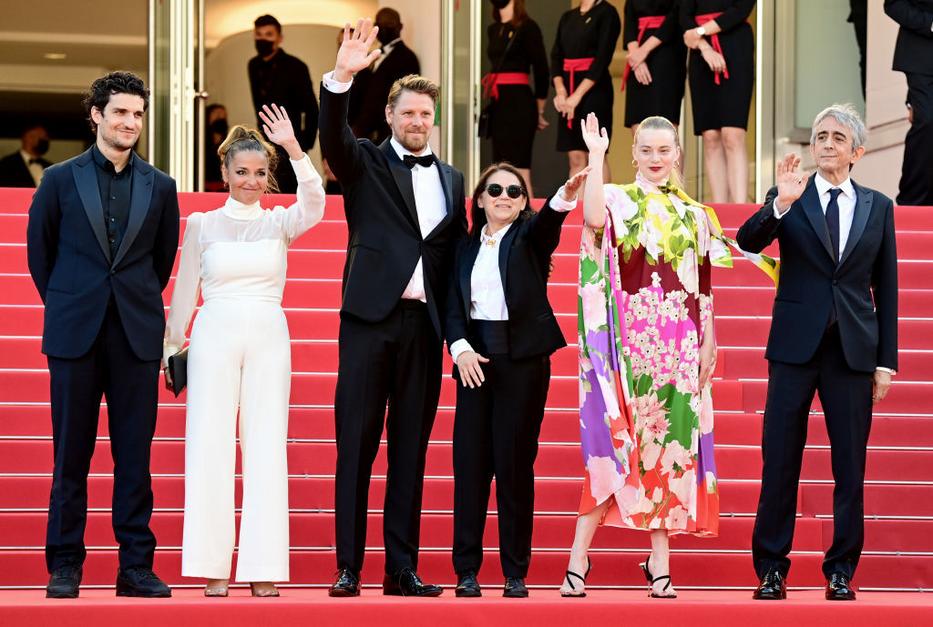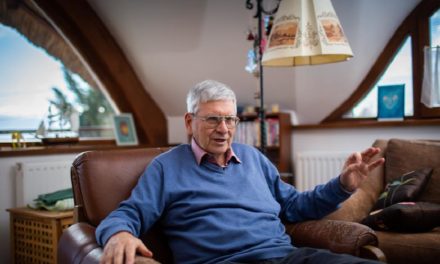Ildikó Enyedi's new Palme d'Or competition film was presented to a full house in the 2,300-seat Lumière hall of the Festival Palace in Cannes, and its reception was very mixed.
A curious feature of the film, which is evident at first glance, is the cast , which is thus depicted in the film adaptation of The Story of My Wife - The Notes of Captain Störr, which
Gijs Naber, Léa Seydoux, Louis Garrel, Jasmine Trinca, Sergio Rubini, Josef Hader, Simone Coppo, Ulrich Matthes, Udo Samel, Luna Wedler.
The names of only two Hungarian actors (Károly Hajduk and Rujder Vivien) appear - in marginal roles - on the cast list, and a third, Sándor Funtek, who plays Tommy, is a French citizen.
Another special feature of the nearly three-hour (169-minute) Hungarian-German-Italian work is that it is in English. And the world will become internationally hungry tomorrow - we could joke if the phenomenon were funny. But it isn't. And this is also confirmed by the critics, because although the Cannes audience gave the celebrants a standing ovation - who dared to stop first? -, the foreign media were no longer so enthusiastic.
The Hollywood Reporter stated that the authorial voice of Ildikó Enyedi, one of the most captivating directors in Eastern Europe, has not only faded, but also become somewhat outdated. Although Milán Füst's novel tells the captain's story in the first person, Enyedi's film falsely endows the characters with a monotonous personality and behavior - and this raises countless questions about their plans and decisions, the newspaper writes.
Although the director himself adapted the novel, he got lost in the maze of the English language, just like his characters: the communication between the characters is anything but smooth. The dialogues are not authentic, at least not so much as to fit the style of the 1920s, i.e. the authentic English medium.
Screen Daily also sees this as the problem, they write that when foreign-speaking actors are forced to act in English, there is little chance of providing an authentic, convincing and penetrating experience to the audience, and Enyedi's decision to shoot the film in English makes it difficult for his own work, that is, to make the production easy to sell in Anglophone areas as well.
Variety , the visual world of the film is excellent, but The Story of My Wife cannot be called a groundbreaking work.
A boat that is slowly approaching the three hour mark as water continues to seep into the hull.
The film falls into the trap of novel adaptations: some scenes are too long, they work with too many characters, and the dialogues sound more like recitations than smooth communication. According to the portal, the problem is not with different English accents. Jakob and Lizzy's exchanges are loud and do not sound natural from the mouths of any of the characters: the captain's favorite expressions and words could at best be compared to the voice of a narrator.
And what does the Hungarian independent media say about the film? The fact that the National Film Institute's HUF 1.15 billion subsidy, which it gave to Ildiko Enyedi, Mónika Mécs and Ernó Mesterházy, could have been spent on starving children, destitute pensioners and, of course, education and health. No way, I was just kidding, they didn't really complain about the amount of the subsidy.
We could even start a social debate about why the Hungarian state is giving 1.15 billion forints to a director who openly opposes it, or to the daughter of Gábor Demszky's checkered political advisor and his wife, Imre Mécs, for a film whose crew has to be searched with a magnifying glass for the Hungarian participants and was made in English. I think this is wrong in a dictatorship. The government should indeed distribute the money to those from whom it was taken. Among the people. For example, Jakab could bring my share, for God's sake, I would even get him an earthmoving machine with a more committed driver!
Front page: Gettyimages / From left to right: Louis Garrel, Mónika Mécs, Gijs Naber, Ildikó Enyedi, Luna Wedler, Sergio Rubini












